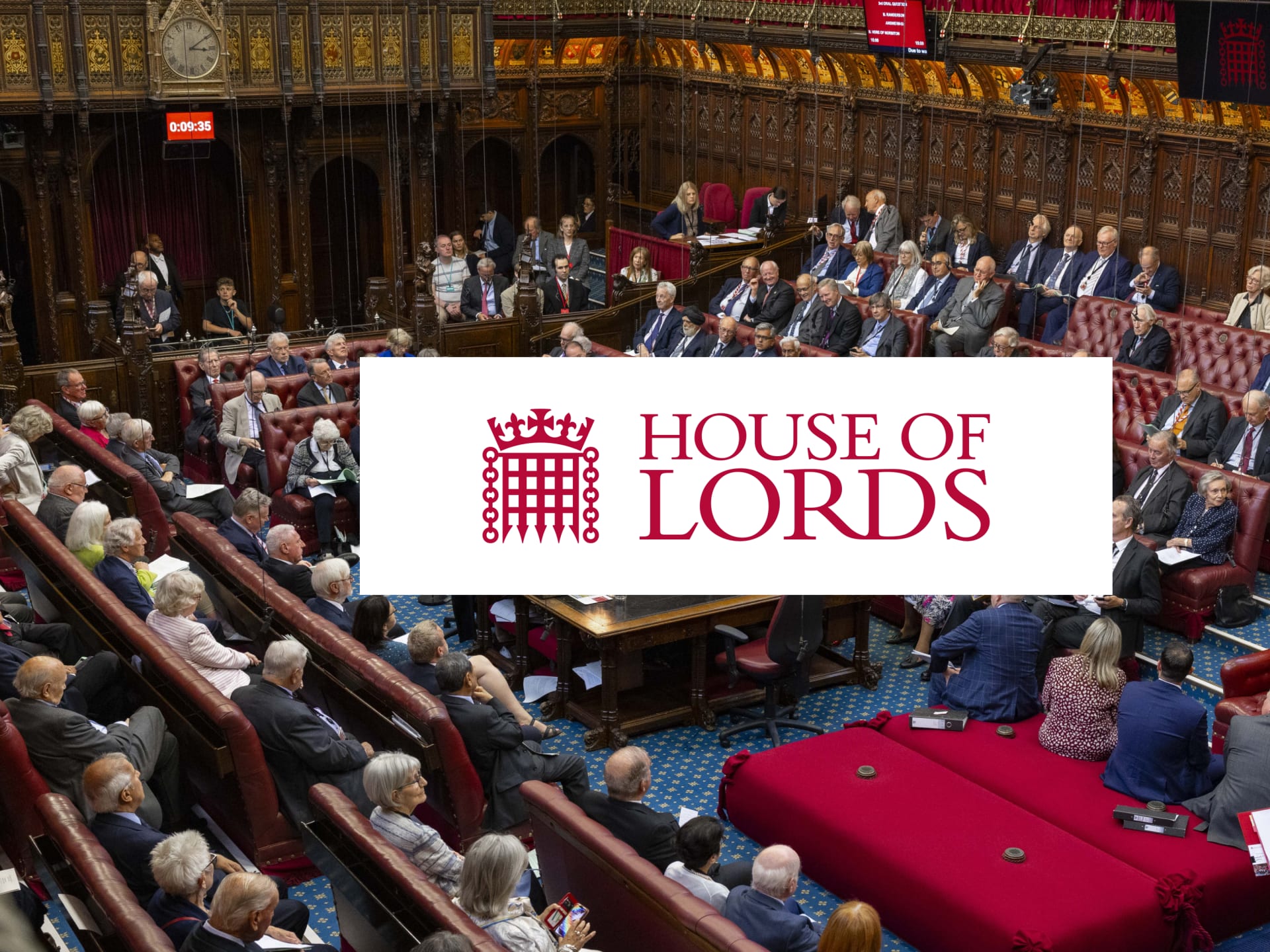Garfield AI Featured in Daily Mirror as Regulated Alternative to Unregulated ChatGPT
The Daily Mirror highlights Garfield AI's £7,000 debt recovery success as a victory for consumer protection, contrasting the SRA-regulated platform with warnings about using unregulated general-purpose AI like ChatGPT for financial and legal matters, where experts warn "AI hallucinations could have serious consequences."

London, 3 October 2025 – The Daily Mirror has featured Garfield AI as a positive example of regulated AI in an article warning about the dangers of using unregulated chatbots like ChatGPT for financial and legal matters. The newspaper highlighted Garfield's £7,000 debt recovery success, noting that consumer organisations celebrated it as a victory "because it functions under identical regulations as a law firm," while experts cautioned that general-purpose unregulated AI "could burden you with devastating tax liabilities, poor mortgage selections or catastrophic pension choices."
The Critical Distinction: Regulated vs. Unregulated AI
The Daily Mirror article draws a sharp distinction between professional, regulated AI services like Garfield and general-purpose chatbots. While the article warns that "over one in five adults" are turning to AI for financial guidance, it specifically contrasts unregulated tools with Garfield's professional oversight.
The newspaper reported: "This week, Garfield AI, a legal service operated by professionals and sanctioned by the Solicitors Regulation Authority, reclaimed £7,000 of debt for one client for merely £7.50. Consumer organisations celebrated it as a victory because it functions under identical regulations as a law firm."
This framing positions Garfield not as part of the problem, but as the solution, demonstrating how AI can work responsibly when properly regulated and professionally operated.
Expert Warnings About Unregulated AI
The Daily Mirror article features extensive expert commentary warning about the risks of using general-purpose AI for financial and legal matters, creating important context for why regulation matters.
The "Context Problem" vs. "Maths Problem"
Colette Mason, founder of London-based Clever Clogs AI, explained why general-purpose AI is unsuitable for personalized financial advice:
Financial advice is a context problem, not a maths problem. Untrained AI doesn't know you have a mortgage, debts, investments, or a low-risk tolerance. Its over-confidence creates a catastrophic psychological trap for novice users.
Colette Mason, Founder, Clever Clogs AI
She cited Andrew Lo from MIT, who stated that a fully reliable decision-making AI is still "five years away," concluding: "Until an AI assumes full fiduciary duty, it remains a smart toy, not a trustworthy advisor."
This expert perspective underscores a critical distinction: Garfield operates within a specific, well-defined domain (small debt claims) with professional oversight and regulatory accountability. General-purpose chatbots lack this specialization, context, and accountability.
The Danger of "AI Hallucinations"
Tony Redondo, from Cornwall-based Cosmos Currency Exchange, acknowledged AI's usefulness for "heavy lifting" tasks like learning jargon or drafting letters, but warned:
The danger emerges when clients use AI for specialist advice on irreversible, highly personalised matters like tax, mortgages, pensions, or insurance, where AI hallucinations could have serious consequences.
Tony Redondo, Cosmos Currency Exchange
The concept of "AI hallucinations," when AI generates plausible-sounding but incorrect information, represents one of the most serious risks of unregulated AI tools. Garfield's hybrid architecture, combining deterministic expert systems with Large Language Models under professional oversight, specifically addresses this risk through multiple layers of protection.
Beyond Financial Risks
Mitali Deypurkaystha, a business leader based in Newcastle, highlighted that the risks extend beyond financial matters:
ChatGPT has dazzling intelligence, but no wisdom. Used properly it can help with interviews and presentations. But start treating it as a therapist or confidant and communication skills diminish, isolation creeps in. We've already seen reports of psychosis, people falling in love with chatbots, and even a tragic suicide.
Mitali Deypurkaystha, Founder and CEO, Impact Icon AI
This sobering perspective emphasizes that unregulated AI poses not just financial risks but psychological and social dangers when people treat general-purpose chatbots as substitutes for professional human guidance.
The "Substitute vs. Support" Distinction
Mo Saleh, CEO of Quantum Placements, articulated a crucial distinction:
The risk becomes real when people move from using AI as a support tool to treating it as a substitute for regulated advice.
Mo Saleh, CEO, Quantum Placements
He acknowledged that tools like ChatGPT can save time when summarizing documents or drafting letters, but warned against "relying on AI to calculate tax liabilities, restructure debts, or recommend financial products. Outputs can sound convincing but still be wrong, incomplete, or outdated."
This expert commentary validates Garfield's model: AI as a tool operated within a regulated framework, not as a replacement for professional judgment and accountability.
Why Garfield's Regulation Matters
The Daily Mirror article's celebration of Garfield as functioning "under identical regulations as a law firm" highlights several critical consumer protections:
Professional Accountability
Unlike general-purpose chatbots with no accountability for errors, Garfield operates under SRA oversight with clear professional responsibility.
Specialized Domain Knowledge
Rather than attempting to provide general financial advice across unlimited contexts, Garfield focuses on a specific legal process (small debt claims) where it can deliver consistent, reliable results within clearly defined parameters.
Quality Control Mechanisms
Garfield's architecture includes multiple layers of protection against AI errors:
- Expert system constraints preventing outputs from straying into high-risk areas
- Automated testing validating outputs against legal requirements
- User approval workflow requiring review before documents are sent
- Professional oversight ensuring compliance with legal standards
Consumer Protection Framework
Operating as a regulated law firm means Garfield users benefit from:
- Clear complaints procedures
- Professional indemnity insurance
- Regulatory oversight by the SRA
- Transparency about services and limitations
The £7,000 Success: Regulation in Practice
The Daily Mirror's feature of Garfield's £7,000 debt recovery for just £7.50 demonstrates how regulated AI can deliver real value while maintaining consumer protections. This success story represents more than just cost savings: it validates the model of professional AI services operating within regulatory frameworks.
Consumer organisations' celebration of this success, as noted in the article, reflects recognition that:
- AI can expand access to legal services
- Regulation ensures quality and accountability
- Professional oversight protects consumers
- Transparent pricing makes services accessible
The Regulatory Leadership Angle
The Daily Mirror's positive framing of Garfield's regulatory status reflects broader recognition that the SRA's forward-thinking approach to AI regulation serves consumer interests. By approving Garfield as the first AI-driven law firm, the SRA has:
- Established frameworks for responsible AI legal services
- Protected consumers through appropriate oversight
- Enabled innovation that expands access to justice
- Set standards other jurisdictions may follow
This regulatory leadership provides a model for how professional services can harness AI benefits while maintaining quality and accountability.
Beyond Hype to Responsible Implementation
The expert commentary in the Daily Mirror reflects a maturing conversation about AI moving beyond initial hype to realistic assessment of capabilities, limitations, and risks. Rather than treating AI as a magic solution to all problems, experts emphasize:
- Appropriate use cases vs. risky applications
- The difference between support tools and substitutes for professional advice
- The importance of regulation and accountability
- The ongoing need for human judgment and context
The complete Daily Mirror article is available at mirror.co.uk.
About Garfield AI Garfield AI is the world's first AI-driven law firm, approved by the Solicitors Regulation Authority. Operating under identical regulations as traditional law firms, Garfield provides professional legal services for small debt recovery with full regulatory oversight, quality controls, and consumer protections. Unlike general-purpose chatbots, Garfield operates within a specific domain where it can ensure reliability and maintain professional accountability. Founded by senior City litigation lawyer Philip Young and quantum physicist Daniel Long, Garfield demonstrates how AI can expand access to justice responsibly. Visit garfield.law to learn more.
Media Contact: Philip Young, CEO - philip@garfield.law Daniel Long, CTO - dan@garfield.law
About the Author

Hugo Rawling
Legal Engineer
In other news


